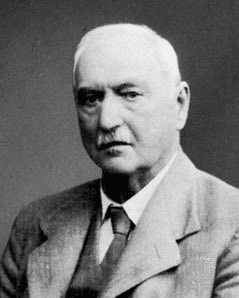Anthony Papagiannis
Thessaloniki, Greece

Many people today are acquainted with well-known books and television series of forensic crime fiction. The modern detective fiction writer is expected to provide detailed descriptions of autopsies, current technology, pharmacology, and toxicology. Yet, even in this relatively new version of the old genre of police fiction, there is nothing new under the sun. Richard Austin Freeman (1862-1943) may have been the father of the forensic crime novel.
Freeman was a doctor and, like Arthur Conan Doyle, wrote about medical people in his stories. His protagonist is Dr. John Thorndyke, a medicolegal expert, who is always at the forefront of science and active at the interface of medicine and law. Usually the defender of innocent suspects, he takes up cases that puzzle law enforcement and defy solution. With persistent and patient work, he brings them to a brilliant conclusion. He uses whatever tools science provides, be it microphotography, fingerprint analysis, or utilization of early X-rays. Freeman’s stories, with their painstaking attention to scientific detail, will appeal to medical readers. For a clever and well-written diversion, one can do worse than delving into one of these mysteries. There are several freely available on the Internet.1-3
Freeman was an accomplished writer with a masterful use of the English language, as would befit an educated Victorian gentleman. His plots are skillful and his characters memorable. He writes fine narratives with dialogue to match, and he does equally well in reciting the chattering of the neighborhood gossip, a flowery legal oration, or a layperson’s rather dumb testimony and cross-examination at court. His details, both medical and legal, are meticulous and stand up to the knowledge of his era. He describes judicial proceedings, an unusual and tender romance, and the unravelling of a well-contrived criminal deception in the same fluent manner. His hero generally follows the Sherlock Holmes method of investigation: he uses his eyes and his prodigious memory (“a medicolegal camel,” his associate calls him) to record minute points that may eventually find a place in the jigsaw puzzle he completes in his mind and subsequently confirms in a scientific manner.
Freeman himself claimed that “he has been careful to adhere to common probabilities and to have made use only of really practicable methods of investigation.” When a critic remarked that this was of no consequence whatever, so long as the story was amusing, he discarded the comment, saying: “To most readers, and certainly to the kind of reader for whom an author is willing to take trouble, complete realism in respect of incidents and methods is an essential factor in maintaining the interest of a detective story.”4 I, for one, agree with him. Interested readers can look up his stories for pure entertainment and judge for themselves.
References
- https://www.gutenberg.org/ebooks/search/?query=r.+austin+freeman&submit_search=Go%21
- http://www.online-literature.com/r-freeman/
- https://www.fadedpage.com/csearch.php?author=Freeman,%20Richard%20Austin
- From the Preface to “The Mystery of 31 New Inn,” available at the links above.
ANTHONY PAPAGIANNIS, MD, MRCP(UK), DipPallMed, FCCP, is a practicing pulmonologist in Thessaloniki, Greece. He graduated from the Aristotle University of Thessaloniki Medical School. He trained in Internal Medicine in Greece and subsequently in the United Kingdom, and specialized in Pulmonary Medicine. He also holds a postgraduate Diploma in Palliative Medicine from the University of Cardiff, Wales, United Kingdom. He is a postgraduate instructor in palliative medicine in the University of Thessaly, Larissa, Greece. He also edits the journal of the Thessaloniki Medical Association, and blogs regularly.

Leave a Reply